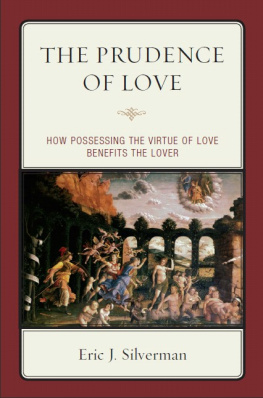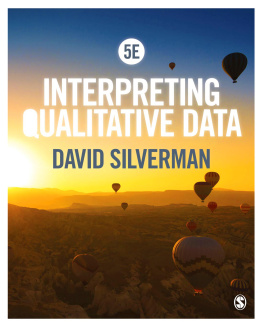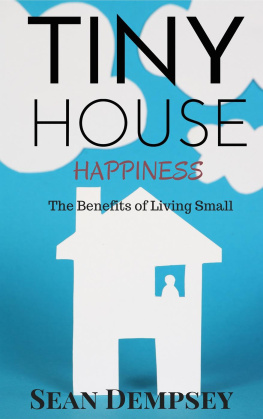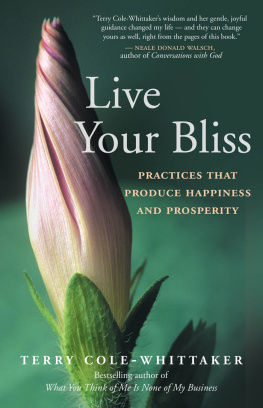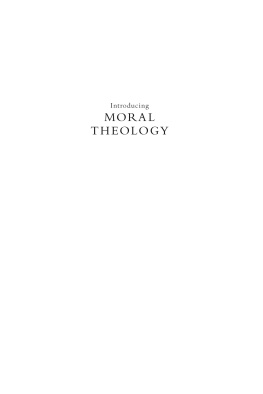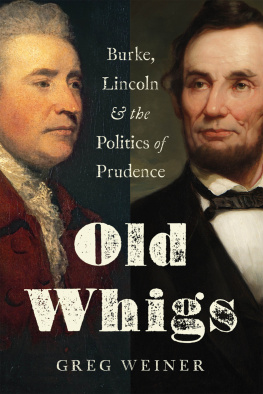Chapter 1
Foundational Issues
This book makes a simple claim: love contributes to the well-being of the loving person. More precisely, possessing the virtue of love directly and indirectly contributes to the well-being of the virtuous agent. Whether virtues, such as love, contribute to their possessors well-being has been an issue for both historic and contemporary debate. While I am sympathetic to the broader eudaimonist position, I limit this projects scope to an investigation of whether love is an eudaimonistic virtue. I defend the position of the eudaimonists, such as Aristotelians and Thomists, against the claims of sentimentalists, Kantians, and others who see no necessary connection between virtues like love and the lovers well-being. I argue that the virtue of love benefits its possessor in at least five distinct ways, that possessing the virtue of love typically increases the lovers overall well-being, and that developing a loving disposition is a more prudent strategy for increasing well-being than cultivating any of the vicious alternative dispositions. This chapter proceeds by examining the current state of the philosophical debate on foundational components of my thesis with particular attention to traditional views concerning the connection between love and well-being, theories of well-being, and the definition of virtue.
1.1 HISTORICAL PRECEDENTS TO CONTEMPORARY VIEWS
OF THE RELATIONSHIP BETWEEN LOVE AND WELL-BEING
Love is highly valued in ethics, in religion, and in most personal lives. However, the question of why love is valuable remains unresolved. Accounts of why love is valuable vary from one conception of love to another. While it is relatively uncontroversial that love benefits the beloved in numerous ways,1 whether, how, and how likely love is to benefit the lover remain unresolved issues. Some of the historical precedents to contemporary views are found in Immanuel Kant, Plato, and Thomas Aquinas.
Kants account of love and well-being is the most hostile to my own views, since he explicitly rejects any necessary connection between virtue and wellbeing. He construes love as practical sacrifice and describes it as service based upon moral duty. Love is embodied in action, apart from and even against the lovers personal inclinations:
For love out of inclination cannot be commanded; but kindness done from dutyalthough no inclination impels us, and even although natural and unconquerable disinclination stands in our wayis practical, and not pathological, love, residing in the will and not in the propensions of feeling, in principles of action and not of melting compassion; and it is this practical love alone which can be an object of command.2
Thus, the Kantian account focuses on love expressed through sacrificial action, unaided by personal inclination, and sometimes even against the desires of the loving individuals heart. Love is not part of the lovers personal fulfillment. It does not necessarily contribute to the lovers happiness or wellbeing. Indeed, it may cause the lover to risk his own happiness and well-being for the sake of the beloved. This account reflects Kants broader view that virtue often conflicts with an agents pursuit of personal happiness. He explains why there can be no necessary connection between virtue and happiness :
Consequently, either the desire for happiness must be the motive to maxims of virtue or the maxim of virtue must be the efficient cause of happiness. The first is absolutely impossible because (as was proved in the Analytic) maxims that put the determining ground of the will in the desire for ones happiness are not moral at all and can be the ground of no virtue. But the second is also impossible because any practical connection of causes and effects in the world, as a result of the determination of the will, does not depend upon the moral dispositions of the will but upon knowledge of the laws of nature and the physical ability to use them for ones purposes; consequently, no necessary connection of happiness with virtue in the world, adequate to the highest good, can be expected from the most meticulous observance of moral laws.3
The only ways Kant believes virtue and happiness could have a necessary connection would be if the proper motive for virtue were the desire for happiness or if virtue necessarily causes happiness. Since he believes duty is the only morally appropriate motive, he views the desire for personal happiness as a vicious motivation. He also asserts that attaining happiness is based upon ones practical abilities for achieving desires rather than ones degree of virtue.4 Since possessing virtue does not entail the practical ability to fulfill desires, there can be no necessary connection between virtue and well-being. In Chapter Five, I will return to Kants objection, but for now it is enough to note his rejection of eudaimonism.
In contrast, one common model of love claims that while it may require sacrifice, a life without love is inferior to one with love. One such theory is presented by Aristophanes in Platos Symposium. He offers an overwhelmingly positive account of the nature of love, personifying it as a god. He extols love and its intimate connection to happiness:
Mankind, he said, judging by their neglect of him, have never, as I think, at all understood the power of Love. For if they had understood him they would surely have built noble temples and altars, and offered solemn sacrifices in his honor; but this is not done, and certainly ought to be done: for of all the gods he is the best friend of men, the helper and healer of the ills which are the great obstruction to the happiness of the race.5
Aristophanes portrays love as the most central component of happiness. He goes on to explain loves importance in light of the myth of the divided person. It claims humans have been divided into two halves by the gods. Love is the only way to regain wholeness. It provides the ultimate mutual fulfillment of two selves. Without love, emptiness remains as one goes through life as an incomplete person. Fulfillment is only possible for those who love, regardless of the sacrifices it requires. He describes that the great joy lovers find in one another ultimately masks the deeper, opaque needs love fulfills:
And when one of them finds his other half, whether he be a lover of youth or a lover of another sort, the pair are lost in an amazement of love and friendship and intimacy, and one will not be out of the others sight, as I may say, even for a moment: these are they who pass their lives with one another; yet they could not explain what they desire of one another. For the intense yearning which each of them has towards the other does not appear to be the desire of intercourse, but of something else which the soul desires and can not tell, and of which she has only a dark and doubtful presentiment.6
While Aristophaness account of love portrays love and well-being as deeply connected, it is ultimately vague concerning how it benefits the lover. While the myth claims that humans have been literally divided from their other halves, this metaphor obscures the actual benefits of love. We are left to infer what foundational problem love solves. Is the problem that each person is ultimately incomplete in himself and unable to reach happiness alone? Does love benefit by making valuable relationships possible, which in turn fulfill the lover? Is love then only valuable as a means for attaining desirable relationships? Aristophaness account acknowledges that love benefits the lover, yet the nature of those benefits remains vague and limited to their role in improving relationships.
In contrast to these accounts of love, Thomas Aquinass construes love in terms of personal fulfillment and gives a clear reason for why love benefits the lover. He views love as part of humanitys eternal destiny. The virtue of charity, which results in loving action, brings joy and peace to the charitable person. Furthermore, love is construed as a perfection of personal will that is needed for happiness. He offers an account that shows how love expressed in the lovers will is inevitably connected with his own happiness. He explains,

